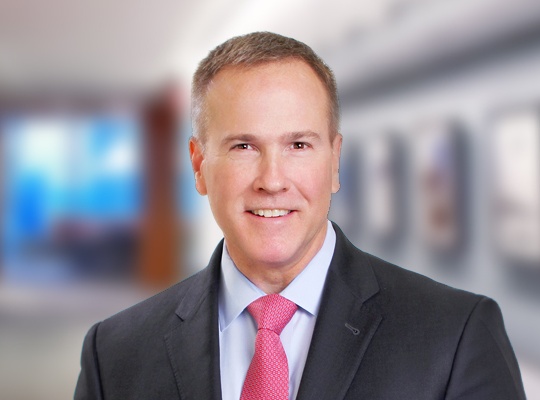Four Key Considerations for Capital Raising in the Private Credit Industry
Raising capital has become increasingly complex as investors grow more selective and the market faces ongoing challenges. Explore the key considerations for successful capital raising across the private credit industry, including strategies for capturing a bigger market share despite a period of perceived slowness, the growing role of Environmental, Social, and Governance (ESG) objectives, and growing interest in retail channels.
1. Bigger platforms are taking a bigger share
As offerings have declined in size and number since mid-2022, institutional investors have gotten choosier. There has been a flight to quality – or at least scale – with investors allocating more of their capital to bigger and better-known platforms. While raising capital has been slower and harder for everyone, the bar has been raised the highest for niche, new and smaller platforms.
2. Slowness extends beyond asset classes
While capital raising for private lenders has slowed, things are slow in other areas as well. In the past, private credit was lumped into institutional investors overall ‘alt’ or “alternatives’ strategy, along with private equity and venture capital. In recent years, however, these investors have a more nuanced view and a better appreciation for what private credit can bring to their portfolio.
This includes access to better current yields, with private lending spreads outpacing traditional syndicated lending and other asset classes. Private credit also empowers more sophisticated portfolio management, giving investors the capability to balance their allocations across a range of debt investment vehicles that meet diverse needs – spreading risks across industries and geographies, for example, or aligning duration so that incoming debt payments match outgoing liabilities. Thanks to these benefits, private lenders may end up capturing a bigger market share with institutional investor capital despite this period of perceived slowness.
3. Investor concerns go beyond default rates
While institutional investors are doing more due diligence on managers’ portfolios and performance, the scrutiny doesn’t stop there. Especially in Europe, environment, social and governance (ESG) objectives are playing a bigger role than ever, with a particular interest in how private lending supports overall ESG goals through accelerated investment in green energy or socially conscious investments. While this focus on ESG and other non-traditional metrics is more common from European investors, investors in the United States and Asia are beginning to focus more closely on them.
4. Retail is real, but poses liquidity challenge
As institutions have become more cautious, the perceived advantages of products targeting retail channels has increased. Selling through retail outlets entails a big lift for managers, however, as they must invest time and energy into compliance with regulatory and legal requirements and build out substantial infrastructure to succeed in the mass affluent and retail markets. Such distribution channels also require managers to reassess their liquidity strategies, one of the areas where the needs of retail and institutional investors diverge significantly. Retail investors, who are used to public markets, expect ample liquidity and rapid trading opportunities, while institutional investors who don’t want performance correlated to the public markets and would prefer not to re-underwrite their investments as often, can tolerate less liquid funds. Despite these hurdles, the retail opportunity remains significant, with the investable retail assets in Asia being notably larger than those in the US.
This article is based on insights shared during a panel discussion at the 2023 Permanent & Private Capital Summit. Speakers on the Unlocking Capital: Strategies for Capital Raising in Private Credit panel included Victoria Chant, Managing Director, Blackstone Credit, Alex Chi, Co-Chief Executive Officer and Co-President, Goldman Sachs BDC, Harley Lank, Head of High Income and Alternatives, Fidelity and Phillip Titolo, Head of Direct Private Investments and Portfolio Manager, Alternatives - Investment Management, MassMutual. The panel was moderated by Tom Friedmann, Partner, Dechert LLP and Al Laufenberg, Managing Director, KBW/Stifel.

